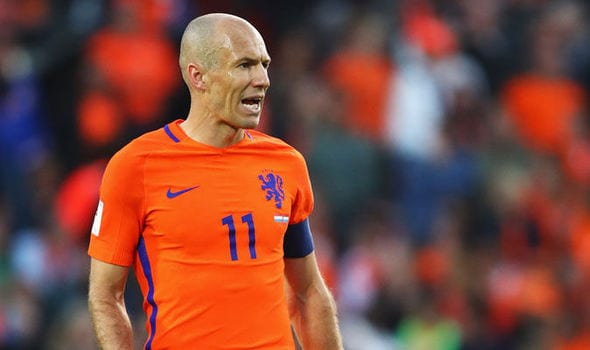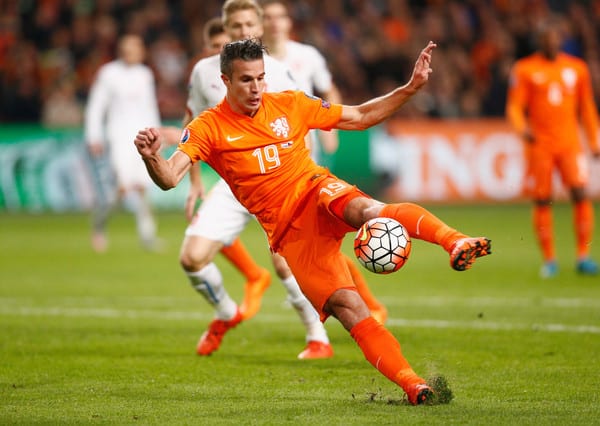When you think of the Netherlands and soccer, you cannot avoid that nostalgic feeling. The long list of players who left their mark, the ten World Cup appearances, the orange fans who stand by the team day in and day out, always filling the stadium with an electric atmosphere.
Nowadays, there is only one issue. The Dutch national team does not even remotely resemble the days of Cruyff, Van Basten, or Bergkamp. The Netherlands are traditionally seen as the best team that has never won a World Cup, a fact that will not change in 2018 as the Dutch didn’t even qualify for the tournament. Yes, even the big teams may have a slower qualifying campaign, and the Netherlands did have a tough qualifying group that included France and Sweden.

But they failed to qualify to soccer’s greatest stage just two years after the team failed to make it to EURO 2016, which featured 24 teams. Something has to be wrong with the national team, right?
But it’s not only the national team that isn’t able to recreate the good old days, the clubs are having some trouble too. Ajax Amsterdam revolutionized the game in the early 1970’s, making them the best team in the world at the time. But this season, for the first time in more than 50 years, they have not qualified for a European competition, not even the first round. Ajax is not alone. Only two Dutch clubs will participate in European competitions this season, both qualified automatically to the group stage. Three other teams had the chance to qualify in preliminary rounds, none of them did.
There are many factors that have come into play and can be used as an excuse for the fact that the World Cup finalist from 2010 and semifinalist in 2014 will not compete in 2018. The leading reason many may point a finger to would probably be the coaching. Those in charge of appointing the manager for the national team seem to have lost their creativity recently, and may be searching in the wrong places. Recently they’ve looked at either a veteran manager (including some that may be too old), or a former great player who has no real managerial record.
The man in charge for the 2018 qualifiers was 70-year-old Dick Advocaat. Yes, the same man who led them to the 1994 World Cup almost a quarter of a century ago. Advocaat replaced Danny Blind, a great former defender with very little managerial experience. And who was in charge before Blind? Guus Hiddink who came back for a second term, 20 years after managing the team for the first time.
How about a foreigner, someone with a fresh philosophy, like their neighbors from Belgium hired? Nope. How about a former player who was not a big star but did walk up, step by step, on the managerial track before becoming national coach, such as those leading Spain and Italy these days? Not here.

Maybe it’s time the Dutch look west, into the Atlantic, to see how it’s done right. When Iceland beat the Netherlands twice in their EURO 2016 qualifying group, it was considered a major shock. The Nordic team went on to qualify for the tournament for the first time in their history while the Dutch watched on TV for the first time since 1984. Two years later, no one is surprised to see Iceland in a major tournament once again. How did that happen? There are many factors, and the leading one is, you guessed it, coaching.
It was early in the previous decade when those in charge at the Football Association of Iceland realized that it wasn’t their small population that was preventing them from succeeding, but rather a lack of proper managers. The first step taken by local soccer authorities to change that was to dramatically improve courses for managers in Iceland, using the funds coming from UEFA for television rights. Less than 80 people completed training in 2002, the year the program began. A decade later more than 400 enrolled.
That means there are far more good managers today than there ever were in Iceland in the past. There are about 700 Icelandic coaches with a UEFA Pro license, the highest coaching certification available. Since there are just about 100 soccer clubs in the country, many of those 700 coaches become managers or technical directors of youth teams. That means that from a very early age, children are being coached by managers with the highest qualification. A UEFA Pro License is demanded from anyone coaching children in Iceland, you cannot train a youth team in the North Atlantic island unless you’ve gone through their rigorous program.
How about the national team? Despite the increasing number of good local managers, Iceland was not hesitant to appoint a foreigner to the luxurious job. Lars Lagerback’s managing career focused almost entirely on national teams, he never made the move to managing a club. He took his native Sweden to five successive major tournaments, and his arrival had an immediate effect on the Icelandic team. In his first campaign in charge, the qualifying round for the World Cup in Brazil, Iceland finished second in the group, narrowly losing in the playoffs to Croatia.
But this was just the preview. The young players who grew up with proper training over the past ten years have now become national team players, and with a manager who knows how to succeed on the national team level, the road was set. Iceland qualified to EURO 2016, and made it all the way to the quarterfinals.
Lagerback may have left after EURO 2016, but the foundations have been laid. Iceland finished at the top of its 2018 World Cup qualifying group and is heading to Russia in June. Don’t be surprised to see them in many more tournaments in the coming years.

And while they celebrate in Iceland, things look different for the Netherlands. The golden generation of Robben, Van Persie and Sneijder that carried the team to that World Cup final in 2010 is set to retire, and there is no real youngster who is seen as the next big thing who will lead the team going forward. “The Orange” were, and maybe still are, one of the most popular teams in the world due to the new approach they took in the past, but it is probably time to think of something new once again.

The greatest NBA dynasties of all time
The goal for any basketball franchise is to build a dynasty that fans and experts will be talking about for











